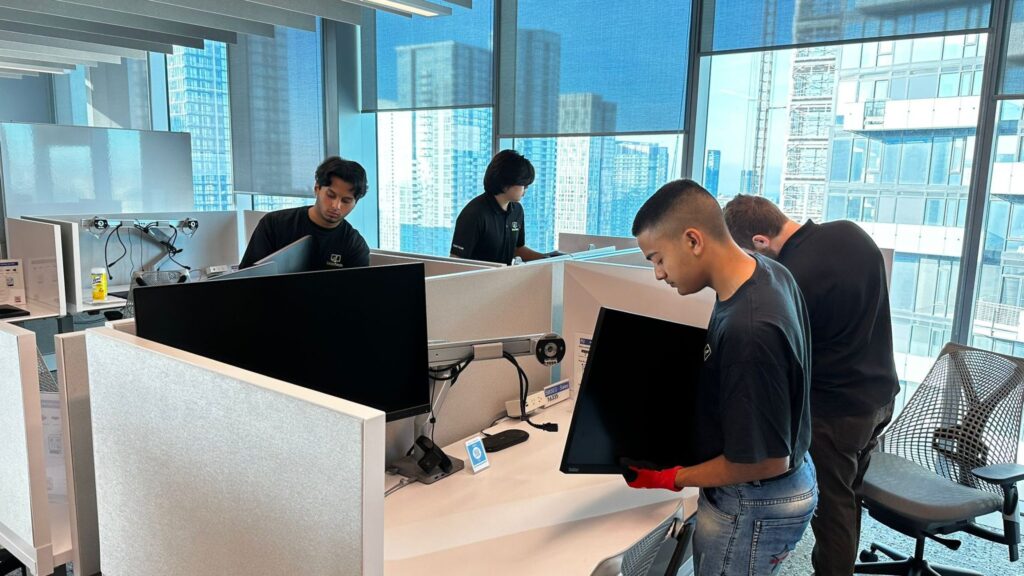5 Things You Need To Know To Avoid Major Stress
and Mistakes During An Office Move
Moving an entire office is no small feat. It requires detailed planning, coordination, and expertise to ensure a seamless transition. As a leading IT relocation company in North America, we understand the complexities of an office move and have seen first-hand the potential pitfalls that can arise. In this blog post, we will delve deeper into the five key things you need to know to avoid major stress and mistakes during an office move.
1. Plan, Plan, Plan
The importance of planning cannot be overstated when it comes to an office move. A detailed plan must be in place well in advance of the move date to ensure that everything runs smoothly. Start by creating a comprehensive timeline, identifying key stakeholders, and assigning responsibilities. Consider the layout of the new space and how it will impact the placement of workstations, servers, and other equipment. Plan for any necessary upgrades or changes to technology, and make sure to communicate the plan clearly with all employees and stakeholders so that everyone knows what to expect.
3. Test Your Equipment Before the Move
Testing all equipment before the move is essential to identify any potential issues or problems that need to be addressed beforehand. This includes workstations, servers, networking equipment, and any other technology that will be moved. Testing will also help establish a baseline for how long it takes to set up and configure equipment, which can aid in planning and scheduling.
In addition to testing, make sure to take the time to backup all critical data. This includes data on workstations, servers, and other devices. It’s important to have a plan in place to restore data in case of any unforeseen issues or complications during the move.
4. Choose the Right IT Relocation Partner
Choosing the right IT relocation partner is crucial to the success of your office move. A partner with experience and expertise in moving IT equipment and technology is essential. Look for a partner that can provide a detailed plan and timeline for the move, as well as clear communication and ongoing support throughout the process.
An experienced IT relocation partner can also help identify potential risks and provide contingency plans to address any issues that may arise. They will also have the necessary equipment and expertise to handle any challenges that may arise during the move, such as difficult-to-move furniture or complex server setups.
When choosing an IT relocation partner, it’s important to do your research. Look for a partner with a proven track record of successful office moves and excellent customer service. Ask for references and read reviews to ensure that you are choosing a partner you can trust.
5. Communicate Clearly with Employees
Clear communication with employees is critical to reducing stress and anxiety during an office move. Employees should be informed of the plan, what they need to do to prepare, and what the timeline looks like. Provide training and support as needed to help them get back up to speed quickly after the move.
In addition to communicating with employees, it’s important to involve them in the move process as much as possible. Encourage feedback and suggestions for how to make the move smoother and less disruptive. This will help build a sense of ownership and engagement among employees and reduce the likelihood of resistance or pushback during the move.
It’s also important to provide employees with all the resources they need to be successful during the move. This could include temporary workspaces, access to technology, and support for any issues that arise. Make sure that employees know who to contact if they need assistance and that help is readily available throughout the move process.
In conclusion, an office move can be a stressful and challenging experience, but with the right planning, preparation, and partners, it can be a smooth and successful transition. Remember to plan early, label everything, test your equipment, choose the right IT relocation partner, and communicate clearly with employees. By following these key steps, you can help ensure that your office move is a success and that your business is up and running in no time.
e: [email protected]
t: 1-833-TEC-MOVE (832-6683)

